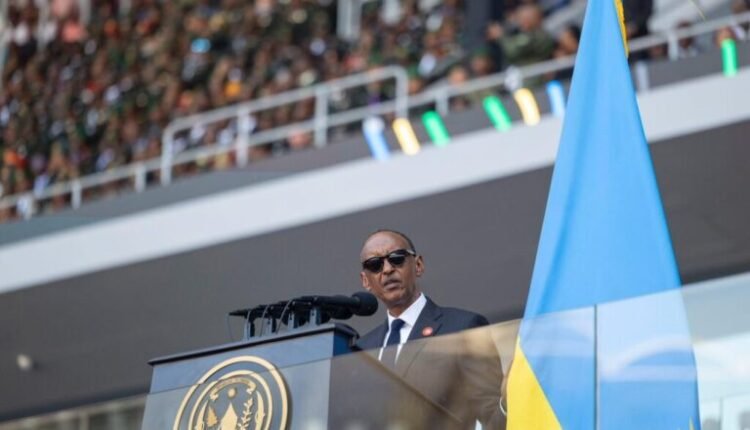Paul Kagamé’s Inauguration Seen by International and Local Media

REPORT
Sudanhorizon – Osman Siddig
While covering the inauguration of Rwandan President Paul Kagamé after his re-election for a new presidential term, the foreign and local media agreed that Kagamé has been the strongman in Rwanda since he overthrew, in July 1994, the Hutu government that incited the genocide that claimed the lives of – according to the UN – more than 800,000 people from the Rwandan Tutsi minority.
From 1994 to 2000, he served as vice president and de facto ruler, before becoming the official president. He is also credited with the amazing economic recovery that his country has achieved since then as Rwanda has become relatively stable, Kagamé sought to transform it into the “Singapore of Africa”.
In his oath of office, Mr Kagame vowed to preserve peace and national sovereignty, and to consolidate national unity. He also pledged to “never use the powers conferred upon me for personal interests”.
“Should I fail to honour this oath, may I be subjected to the rigours of the law,” he said.
Some foreign media outlets have touched on other aspects of the African leader’s rosy image. An article in ‘Jeune Afrique’ stated: “With 65% of the population under the age of 30, most Rwandans have only known Paul Kagamé as their leader. “His leadership has transformed our nation,” said Tanya Ireza, a 27-year-old trader who came to attend the ceremony. “Under his regime, Rwanda has recovered from its tragic past to chart a path towards prosperity, unity and innovation.”
“He has barred two of his most vocal critics from running for high office, raising questions about the political climate in Rwanda,” said ‘Africa News’, a Pan African news channel.
“Only two candidates were allowed to run against him in the July elections, and six others were banned,” ‘Jeune Afrique’ magazine added. The two were Frank Habineza, leader of the only authorized opposition party (the Green Democratic Party), who won 0.50%, while independent Philippe Mbayimana won 0.32% of the vote.
As for the ‘BBC’ News website, it stated: While life has improved in Rwanda, Kagamé is accused of destabilizing the neighboring Democratic Republic of Congo. A few days before the July elections, a UN report stated that there were about 4,000 Rwandan soldiers in the Democratic Republic of Congo, where they are accused of supporting the M23 rebel group, which has fueled a bitter dispute between the two countries.
Under Kagamé, Rwandan forces have twice invaded the Democratic Republic of Congo, saying they were pursuing Hutu militias linked to the 1994 genocide. Congolese President Felix Tshisekedi was not among the African leaders at the inauguration ceremony. In his speech, Kagamé appeared to criticize Tshisekedi for failing to help defeat Rwandan rebels based in the DRC. He said that “unless he changes, mediation efforts will not succeed.”
For its part, the French news site “La Croix” pointed out that Rwanda is accused of fueling instability in the eastern neighboring DRC by fighting alongside the M23 rebellion. The site added that the capital Luanda said that Angolan President Joao Lourenco, who attended Sunday’s ceremony, was expected to hold talks with Kagamé about the ceasefire agreement reached in the DRC last month with Angolan mediation. The agreement was negotiated by Angola after a meeting between the two foreign affairs ministers of the DRC and Rwanda. But on the day it was due to take effect, August 4, the M23 rebels took control of a town on the border with Uganda. They have controlled large areas of eastern DRC since launching their offensive in late 2021.
Whatever the view of some of his critics, it will not detract from the achievements in his country, “the Singapore of Africa,” nor will it detract from his status as a unique leader who led his country from the depths of war to the foothills of development and prosperity, until he and his country became an example to be followed in determination and true patriotism.
Within 15 days of his inauguration, Kagame is expected to appoint the Prime Minister, who will then help in forming the rest of the cabinet within another 15 days.
Shortlink: https://sudanhorizon.com/?p=928

